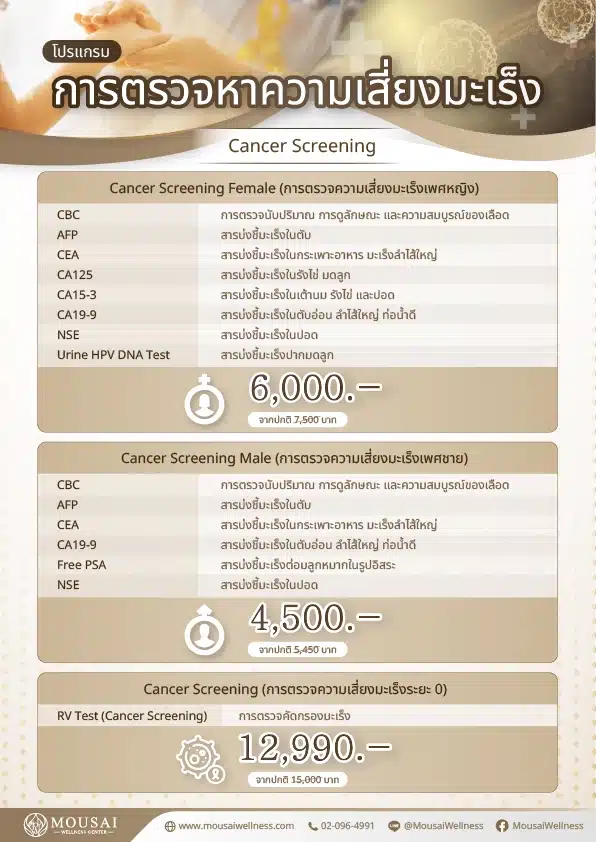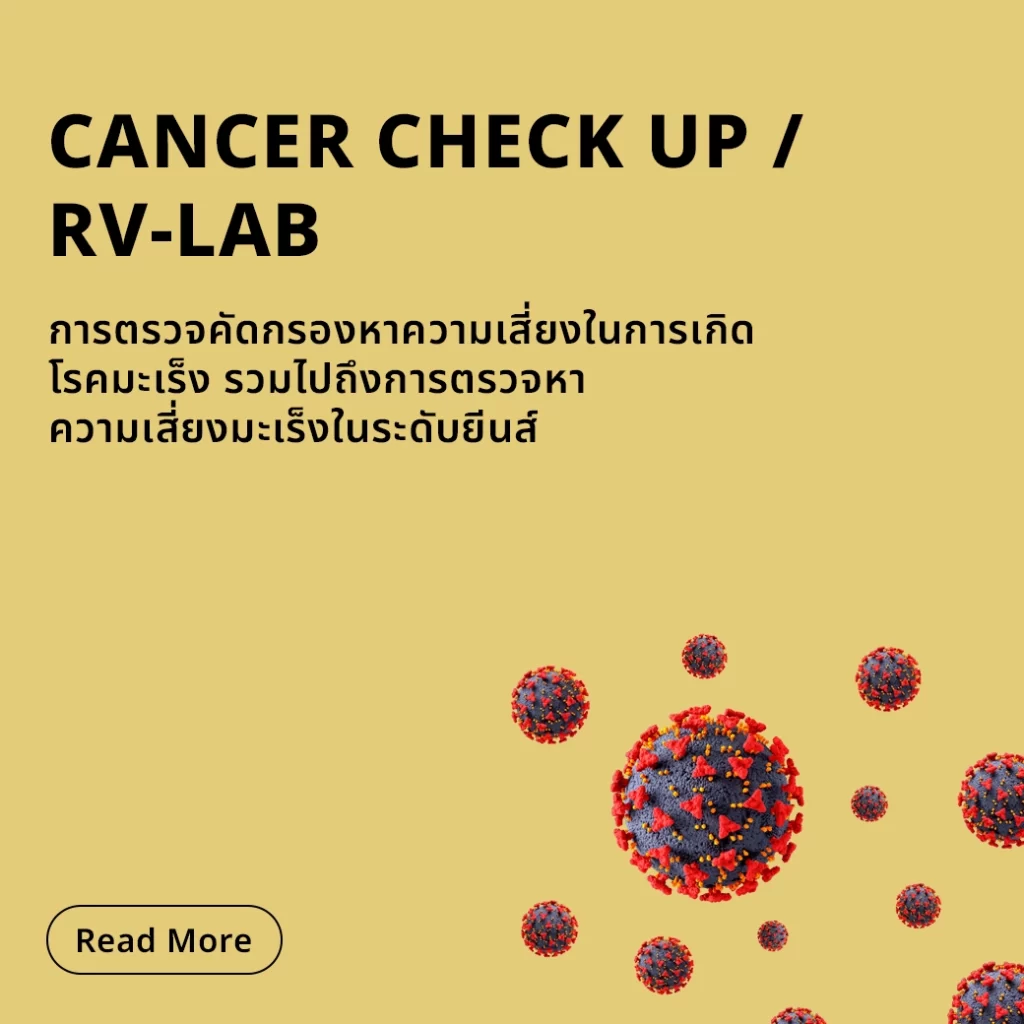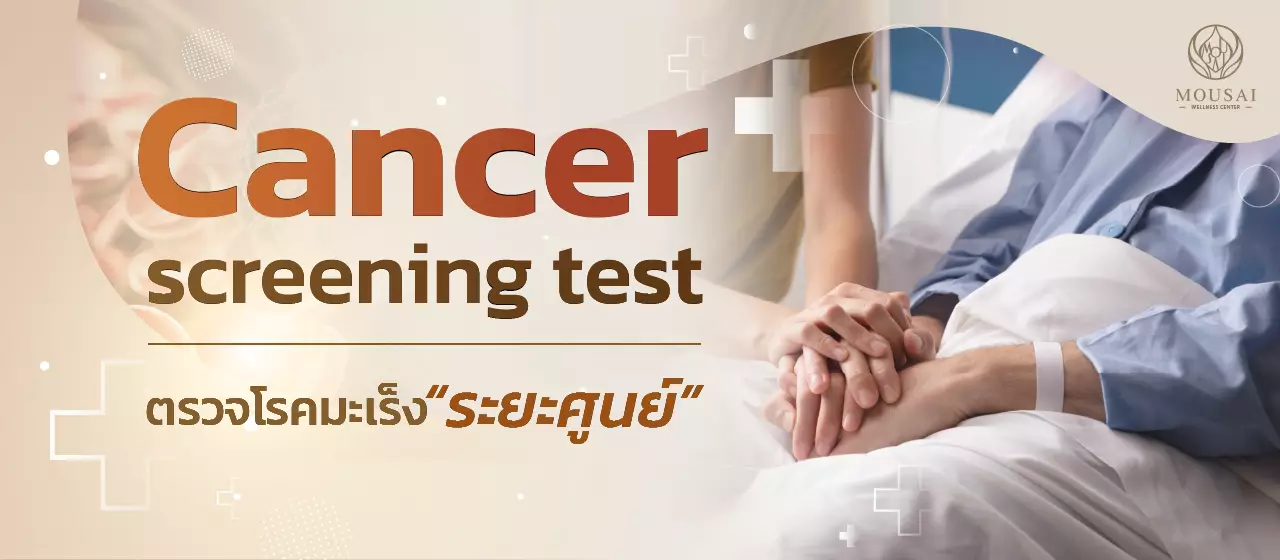
Cancer Screening Check
While many new diseases have emerged in recent years, cancer still ranks among the top causes of death around the world. According to the latest statistics from the World Health Organization (WHO), the number of cancer-related deaths continues to increase every year.
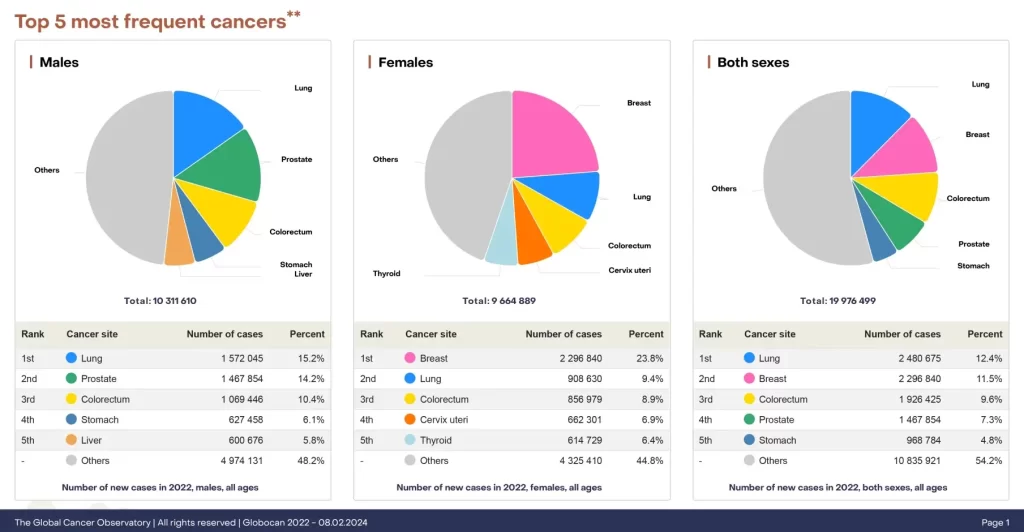
ขอบคุณรูปภาพจาก : https://gco.iarc.fr/today/en/fact-sheets-populations#global
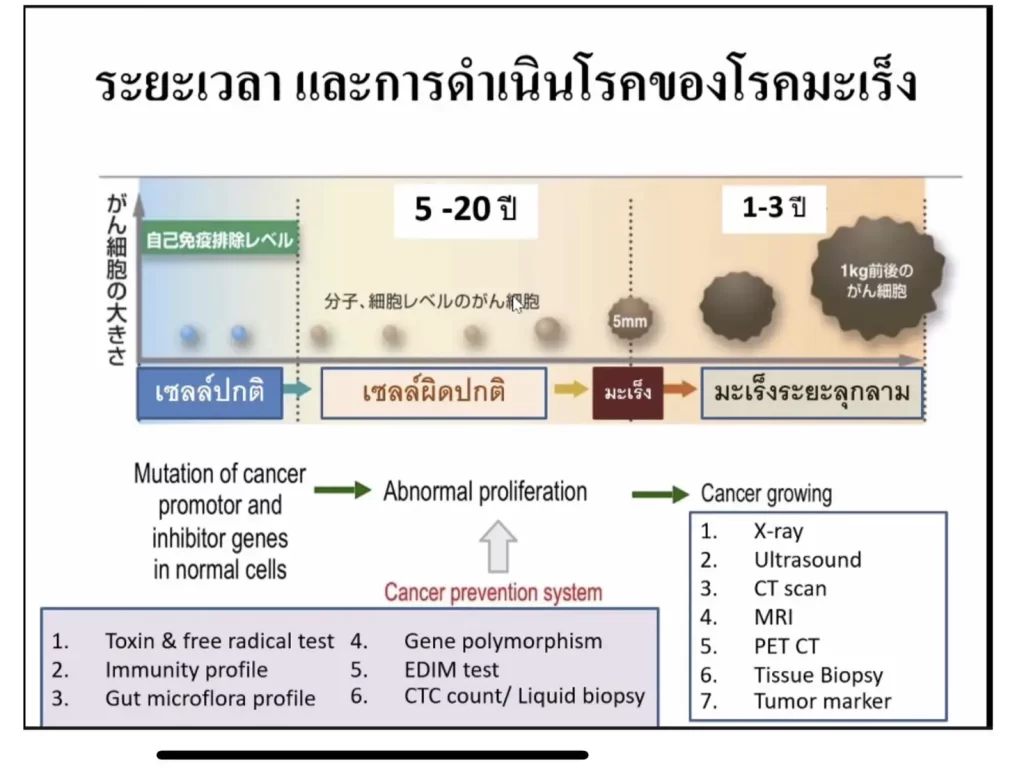
ขอบคุณรูปภาพจาก : https://rv-laboratory.com/en/
In Thailand, the number of cancer patients has also continued to rise, following the global trend. The top 10 most commonly diagnosed cancers in the country are mainly solid tumors. These types of cancer have a higher chance of being cured if detected and treated in their early stages.
In the past, early detection of cancer was challenging, as diagnosis often occurred only after symptoms appeared, making successful treatment more difficult. Today, however, advancements in medical technology have made early detection possible. One such innovation is EDIM Technology, which can detect cancer at its formation stage — also known as the Zero Stage of Cancer.
According to cancer prevalence and mortality statistics from 2020, cancer continues to be a significant health concern in Thailand and globally.
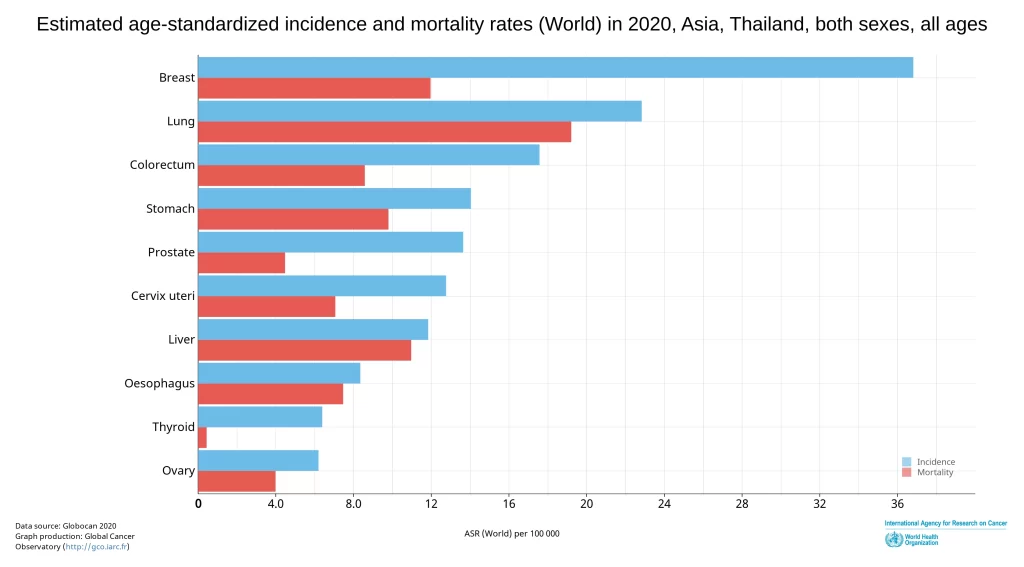
ขอบคุณรูปภาพจาก : https://givemeref.in.th/1358/globocan2022/
What is EDIM ?
EDIM (Epitope Detection in Monocytes) is an advanced blood-based cancer detection technology that helps assess cancer risk from the Zero Stage of Cancer — the earliest phase before symptoms appear. This method uses tumor-associated antigens that specifically interact with immune cells, allowing for the analysis of the immune system’s response.
The technology works by examining macrophages, a type of immune cell that engulfs abnormal cells in the body. EDIM identifies fragments of antigens from these abnormal cells that have been processed by macrophages, providing a highly accurate diagnostic result.
This technology was first researched by RV Lab in Germany in 2007 and gained scientific recognition in 2017. Since then, it has continued to evolve and improve. Currently, EDIM technology can detect solid tumors with an accuracy of up to 92%, covering over 40 types of cancer.
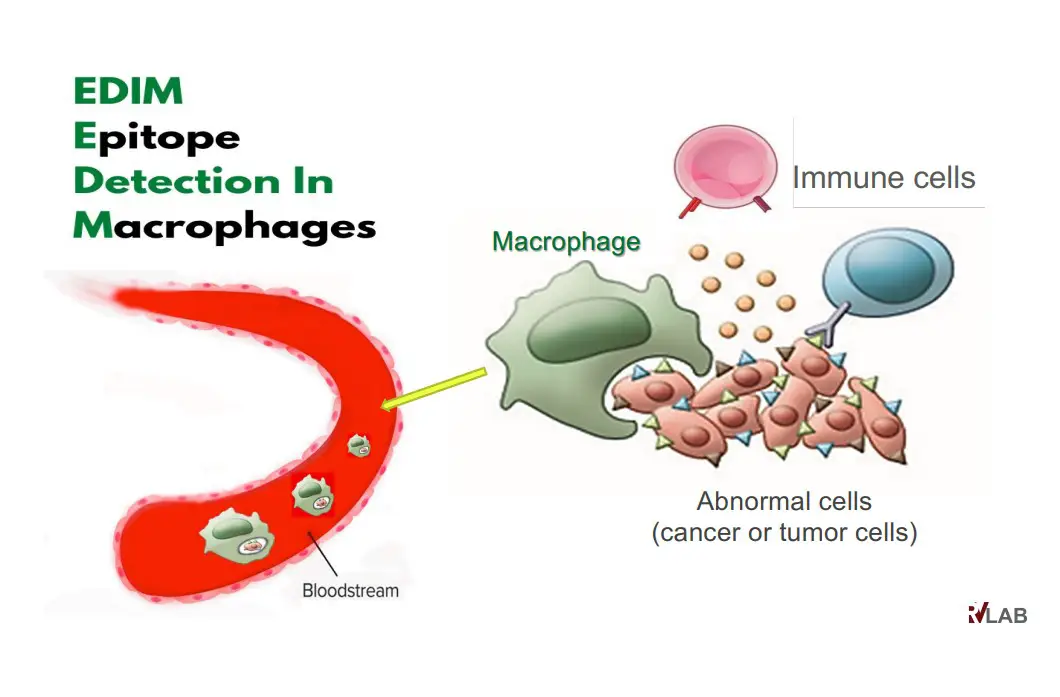
ขอบคุณรูปภาพจาก : https://rv-laboratory.com/en/
Preliminary list of detectable solid tumors
Brain tumor
Astrocytoma
DIPG/Pons Glioma
Ependymoma
Glioblastoma
Medulablastoma
Head and Neck cancer
Nasopharyngeal carcinoma
Hyperplasie
Squamous Intraepithelial
Neoplasm (SIN I-III)
Oral squamous cell carcinoma (OSCC)
Ocular adnexal tumors
Malignant conjunctival tumor
Lung cancer
Bronchial cancer
Small cell lung cencer
Non-small-cell lung cancer
Neoplastic lung tissue
Liver cancer
Hepatoblastoma
Breast cancer
Breast squamous cell carcinoma
Estrogen Receptor (ER) positive
breast cancer
HER2 positive breast cancer
Progesterone receptor (PR)
positive breast cancer
Triple negative breast cancer
Colorectal cancer
Colon cancer
Rectal cancer
Non-metastatic rectal
Gastric cancer
Gastroesophageal junction cancer
Esophageal squamous cell carcinoma (ESCC)
Renal and Urothelial cancer
Squamous cell carcinoma
Bladder cancer
Kidney cancer
Nephroblastoma
Pancreas cancer
Gynecologic cancers
Cervix cancer
Ovarian cancer
Uterine cancer
Vaginal cancer
Vulva cancer
Endometrial cancer
Prostate cancer
PSA positive Prostate Cancer
PSMA positive Prostate Cancer
Prostate squamous cell carcinoma
Bile duct cancer
Cholangiocarcinoma
Others
Adenocarcinoma
Aerodigestive cancer
Ductal carcinoma
Rhabdomyosarcoma
Granulosa cell tumor
Thyroid cancer (follicular and papillary)
Melanoma tumor
Lymphoma tumor
ขอบคุณเนื้อหาจาก : https://rv-laboratory.com
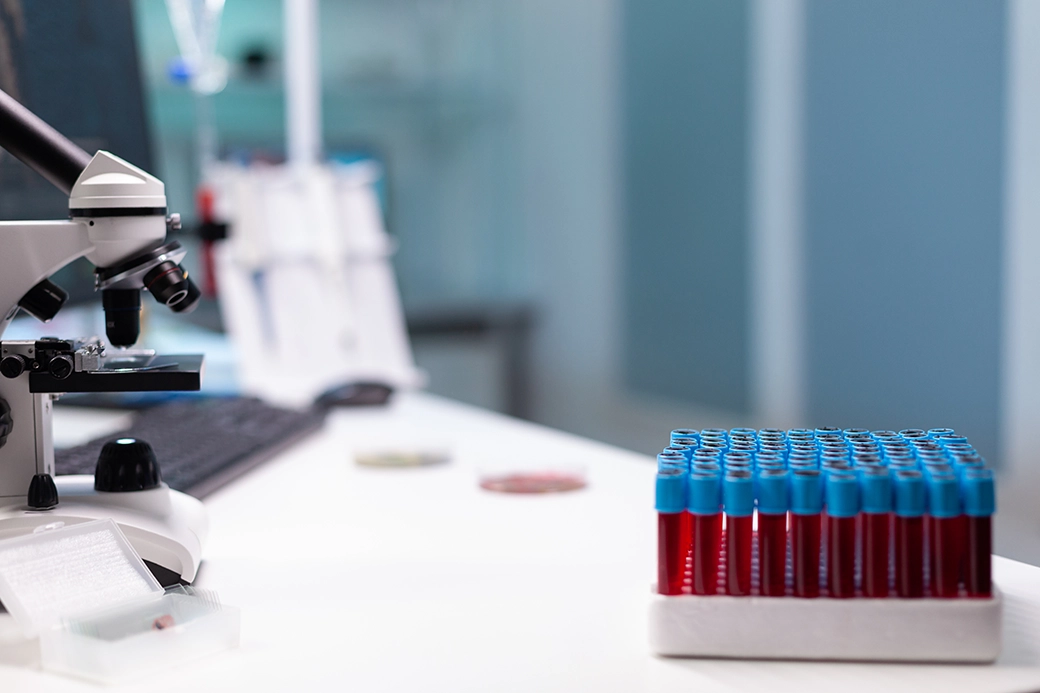
Screening Procedure
Simply visit Mousai Wellness Center, where a staff member will collect a blood sample for analysis. The process is similar to a standard biological blood test and does not require fasting beforehand. The entire procedure takes no more than 20 minutes.
วิธีการเตรียมตัว
To ensure the accuracy of the test results, you should avoid the following for at least 2 months prior to your screening:
- Medications that affect the immune system, including:
- Anti-rheumatic drugs (used to treat rheumatoid arthritis)
- Medications for autoimmune diseases
- Cortisone
- Methotrexate
- GM-CSF
- Amygdalin
- Chemotherapy or radiation therapy
- Active infections or immune-suppressing conditions, such as:
- Acute febrile illness
- Herpes zoster (shingles)
- Other infections that may affect or suppress the immune system
- Recent exposure to contrast materials or radioactive substances used in medical imaging
- Recent invasive procedures or injuries, including:
- Surgery
- Tattoos
- LASIK eye surgery
- Major injuries with deep wounds
- Severe inflammation or infections
- Any type of vaccination
- Cell therapies or immune-boosting treatments, including:
- Stem cell therapy
- Any form of treatment that enhances or alters immune system function

Who Should Consider a Cancer Screening Test?
- Individuals with a family history of cancer
- Those who have previously detected lumps or cysts
- People seeking an annual cancer screening test as part of a general health check-up
- Cancer patients undergoing monitoring and treatment evaluation (Monitoring Test) — this is recommended for patients who need follow-up assessments, ideally at least 8 weeks after treatment
- Cancer survivors undergoing surveillance (Surveillance Test) — used to monitor for any potential recurrence of cancer
* It’s important to note that not all cancers are completely curable, so ongoing monitoring is essential. Early detection significantly increases the chances of safety and successful management.
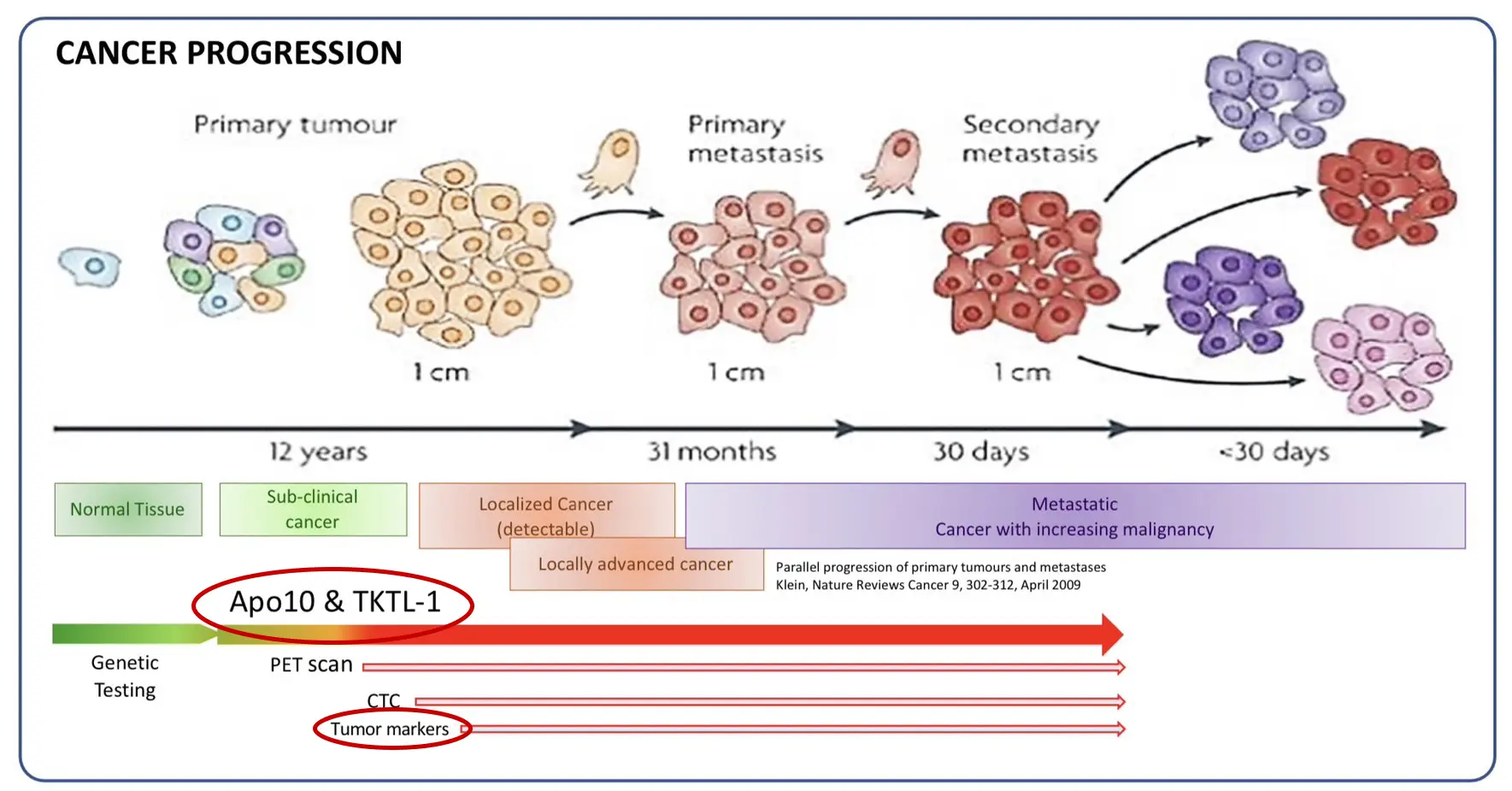
ขอบคุณรูปภาพจาก : https://rv-laboratory.com/en/
Advantages of the Cancer Screening Test
- Simple procedure: Requires only a blood sample
- Broad cancer coverage: Can screen for all types of solid tumors and cancers
- Fast results: Test results are available within 10 working days
- Early detection: Increases the chance of identifying cancer at an early stage
- Cost-effective: Traditional cancer screenings often require multiple tests for different organs, which can be time-consuming and expensive. This test offers a more efficient and affordable alternative.
- High accuracy:
- Specificity: 99.5%
- Sensitivity: 97.5%
Limitations of the Test
- Can only detect solid tumors
- Cannot detect cancers of lymphoid origin, such as lymphoma
